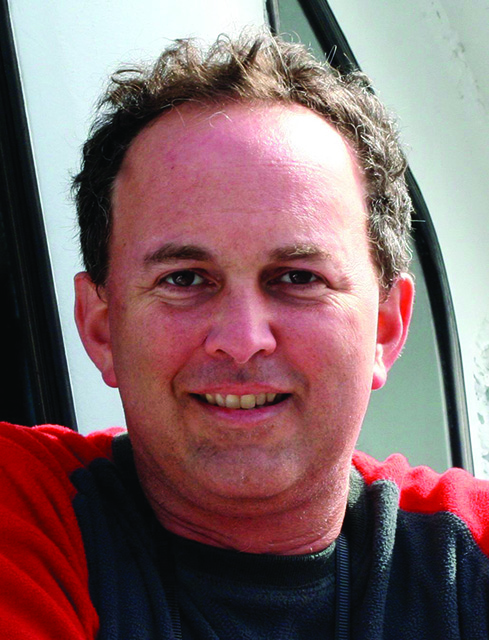B+C Hall of Fame 2024: Bob Bakish
Former President and CEO, Paramount Global

The smarter way to stay on top of broadcasting and cable industry. Sign up below
You are now subscribed
Your newsletter sign-up was successful
Bob Bakish was on the verge of becoming a partner at prestigious consulting firm Booz Allen when his career took a surprising swerve, one that landed him in his new professional home for the next quarter-century and now in the B+C Hall of Fame.
“It wasn’t a thought-out thing,” the former CEO of Paramount Global said.
After studying engineering in college and later getting an MBA, Bakish started at Booz Allen working on packaged goods before taking on media projects, including consulting for Viacom.
One day, deputy chairman Tom Dooley took Bakish to breakfast to discuss Viacom’s future. Bakish thought Dooley wanted a consultant but, he recalled, “He said, ‘If you ever wanted to play the game on the field, instead of calling it from the sidelines, we should talk.’ ”
Bakish made the leap soon after and spent the next two-plus decades proving time and again that he really did belong on the playing field.
A consultant’s job is to give opinions, Bakish said. “It might be controversial and might piss people off, but that doesn’t matter. But when you’re inside the company you have to get things done. You have to figure out how the best idea can be implemented and then get people to buy in and do it. And first, you have to build up credibility.”
You have to craft the argument in a way to build support. And then you have to build the management skills to bring people along.”
Bob Bakish
Bakish put his training to good use, so much so that one day an MTV business development executive said, “The thing I hate about your presentations is that by the time you get to the end I can’t help but agree with you,” Bakish recalled. “I said, ‘That’s the point.’ You have to craft the argument in a way to build support. And then you have to build the management skills to bring people along.”
The smarter way to stay on top of broadcasting and cable industry. Sign up below
Bakish earned enough credibility to quickly climb the corporate ladder, gaining diverse experiences and gleaning valuable insights along the way.
He started at Viacom in 1997 as VP of planning and development and within two years was executive VP of planning and business development for MTV Networks. He quickly rose to executive VP of operations for Viacom as well as executive VP of Viacom Enterprises.
Bakish consistently challenged the status quo, persuading his bosses during his ad-sales days to break the silos between Viacom’s networks and sell package deals for all of MTV Networks.
He said his most “satisfying and fun role” began in 2007 when he became president of MTV Networks International. MTVNI was an unprofitable dead zone, with the complications that come from trying to appeal to many different cultures. But what Bakish reveled in was the full plate of responsibilities with no one above interfering.
Bakish proved himself at MTNI with the savvy restructuring and merging of units and, again, breaking down what he saw as “a confederation of independent nations” to be run as one company. He doubled revenue, making MTVNI hugely profitable. Later, he became president and CEO of Viacom International Media Networks, making it the company’s most successful division.
Smooth Operator
In 2016, Bakish ascended to president and CEO of Viacom, where he began a major restructuring to focus on core brands, introduce an emphasis on new technology like apps and streaming services and replace executives in nearly every unit.
“Bob has made an indelible mark on our industry,” NCTA–The Internet & Television Association president and CEO Michael Powell said. “He wields his talent with good humor, kindness and equanimity.”
Ray Hopkins, a fellow B+C Hall of Famer who Bakish picked as president, U.S. networks distribution at Paramount, praised his former boss as “authentic, direct and candid.”
Bakish’s personal touch proved crucial to rebuilding outside relationships and improving morale, Hopkins said. “I remember heading down from the 52nd floor with him and he’d greet everyone who got on and then he held court in the lobby,” he said. “He’s genuine and a good guy and made everyone feel part of the team.”
Within two years, Bakish had turned the company around. He ran it until earlier this year, when he departed among shifting tides and internal politics.
Bakish isn’t sure what’s next, but he’s also in no rush to find out.
“I don’t want the phone ringing at 10 at night,” he said. “I want time and flexibility for my family. And then it will be time for the next chapter.”
Stuart Miller has been writing about television for 30 years since he first joined Variety as a staff writer. He has written about television for The New York Times, The Washington Post, the Los Angeles Times, The Guardian, The Boston Globe, Newsweek, Vulture and numerous other publications.

